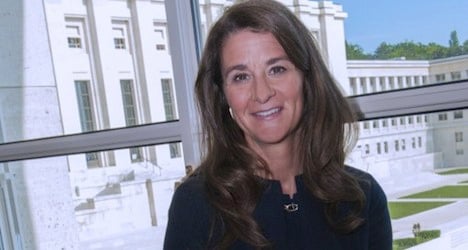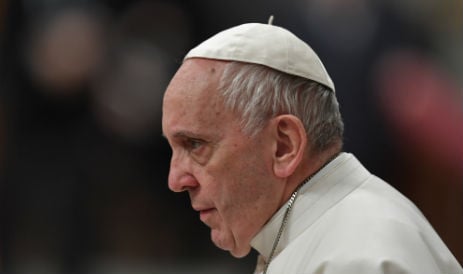"It's actually not that hard to save these babies," Gates said in an interview with AFP at the United Nations regional headquarters.
The co-chair of the powerful Bill & Melinda Gates Foundation was in the Swiss city to urge health ministers and officials from around the world to back an action plan calling for simple practices to make deliveries and the critical period after birth safer.
Simply encouraging women to begin breastfeeding immediately after delivery is important, since it ensures babies receive the nutrients and liquids they need and protects against infections, she said.
Babies should also be dried immediately to prevent hypothermia and especially premature babies should be placed on their mother's naked skin in a technique known as "kangaroo care" to keep them warm, she said.
In addition to such techniques, which besides the cost of training health personnel are free, Gates said cleaning a baby's umbilical cord with a basic antiseptic costing just a few cents was vital for stopping infection.
Bag masks, costing $5 a piece, should also be on hand to resuscitate babies who are not breathing, she said.
"This is not about saying to the world that we need new funds," she said.
"It's saying: take this system that we have today and make sure we focus it on these key, inexpensive interventions."
The world has made huge strides in bringing down mortality rates among children under the age of five, with "only" 6.6 million children in this age group dying each year today, compared to 17 million in 1990.
That, Gates said, was because countries around the globe had jointly focused on driving down the numbers through vaccines and fighting killers like malaria.
Contraceptives important
"But the glaring place where we have not made progress is in newborn deaths," the 49-year-old mother of three told AFP, pointing out that 2.9 million babies die each year within their first month of life, while one million die on their first day.
The tragedy is that the vast majority of these deaths are preventable, said Gates, noting that simply focusing global attention on the problem should help cut the number by two-thirds.
The Every Newborn Action Plan she hopes will be adopted during the World Health Organization's ongoing annual assembly aims to cut the number of newborn deaths from 21 per 1,000 births to seven by 2035.
"Given what we have seen with child mortality under five, if we focus on this we can bring the numbers down," said Gates, who according to a Forbes Magazine ranking is the third most powerful woman on the planet — ahead of Michelle Obama and Hillary Clinton.
She also underlined the importance of promoting good family planning in improving the health of mothers and their babies.
"If a woman can time and space those births and wait a little while before she has the next child, she's going to be healthier and the baby's going to be healthier," she said.
Herself a Roman Catholic, Gates acknowledges that pushing access to contraceptives can be touchy, but insisted it should not be controversial.
"I use contraceptives . . . and over 90 percent of Catholic women in my country use contraceptives," she said.
"It makes a difference in our lives," Gates said.
Women worldwide, she said, should have the same rights to plan their lives and protect their health and the health of the children they choose to have.



 Please whitelist us to continue reading.
Please whitelist us to continue reading.
Member comments